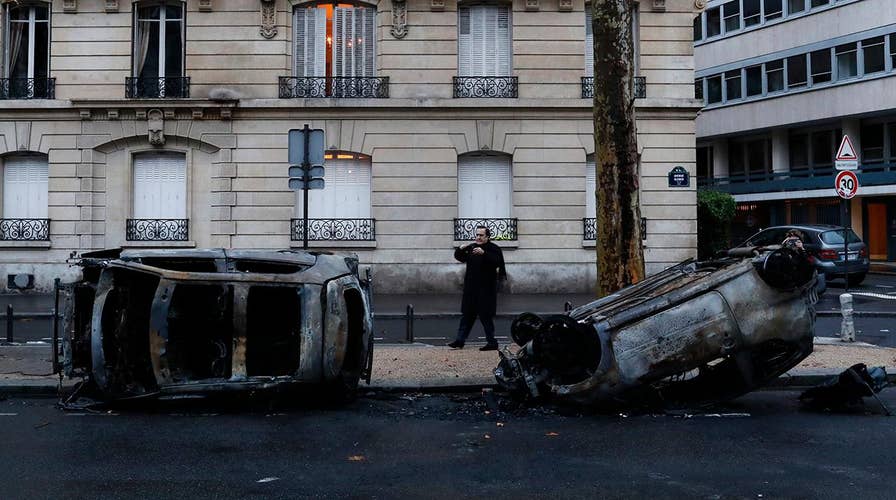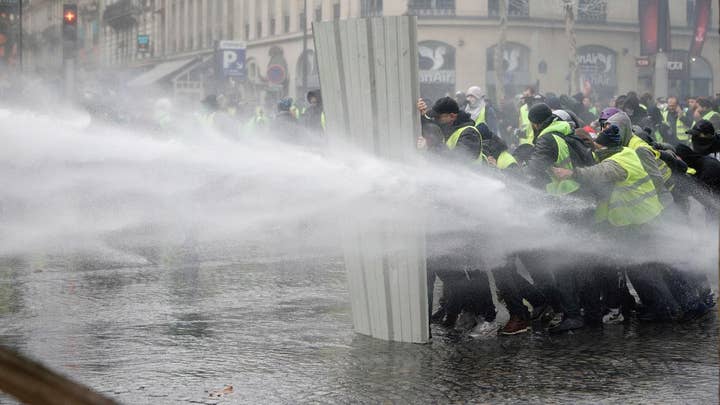Gas tax hike to be suspended in France amid violent riots
French prime minister expected to announce a suspension of fuel tax hikes that provoked a protest movement.
After days of unrest that included widespread rioting in Paris, the French government relented Tuesday and agreed to suspend utility hikes and a controversial fuel tax, the country's prime minister announced.
Edouard Philippe made the announcement in a live televised address, backpedaling on the planned increase, which was set to be introduced in January and is now postponed until the summer.
“No tax is worth putting the nation’s unity in danger,” he said, just three weeks after insisting the government would not be changing course and remained determined to help wean French consumers off fossil fuels.
At least four people have been killed and more than 100 people injured after the violent large-scale protests broke out in mid-November. More than 400 people have been arrested in what officials have called the worst unrest on the streets of Paris in decades.
“The violence must end,” Philippe said.
Dozens of cars were torched and shops were looted in the plush neighborhoods around the famed Champs-Elysees Avenue. The Arc de Triomphe, which only last month was visited by world leaders to mark the centenary of the end of World War I, was sprayed with graffiti and vandalized.
In his address Tuesday, Philippe also announced electricity and natural gas prices will be frozen until May 2019, a move aimed at improving spending power.
But the announcement is unlikely to put an end to the road blockades and demonstrations, with more protests possible in Paris this weekend.
"If another day of protests takes place on Saturday, it should be authorized and should take place in calm," Philippe said. "The interior minister will use all means to ensure order is respected."
On Tuesday, protesters repeatedly blocked several fuel depots and insisted their battle was only beginning.
"It's a first step, but we will not settle for a crumb," said Benjamin Cauchy, a protest leader.
Prominent Socialist figure Segolene Royal, a former candidate for president, lauded Philippe's decision but said the course correction on the climate change tax came too late.
"This decision should have been taken from the start, as soon as the conflict emerged," she said. "We felt it was going to be very, very hard because we saw the rage, the exasperation, especially from retirees. They should have withdrawn [the tax hikes] right away. The more you let a conflict fester, the more you eventually have to concede."
Right-wing leader Marine Le Pen lashed out at the decision as too little, tweeting it was "obviously not up to the expectations of the French people struggling with precarity."
The Associated Press contributed to this report.


